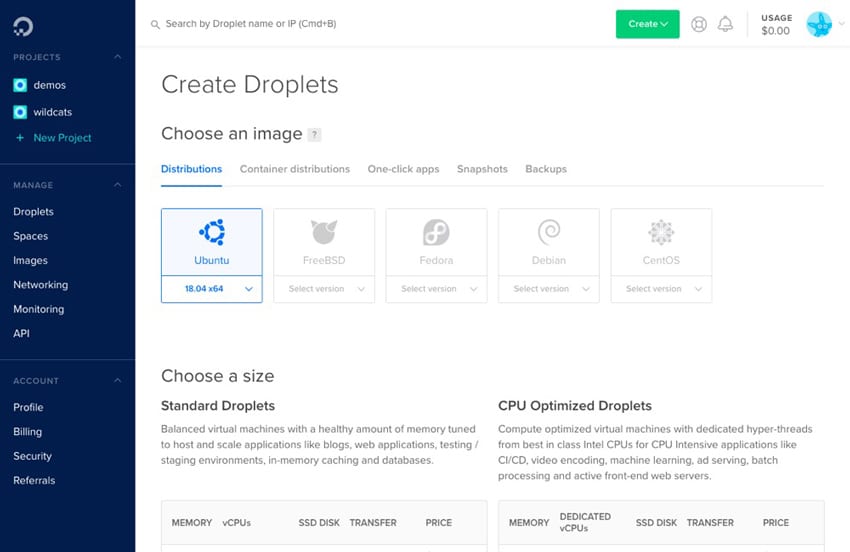
Today DigitalOcean announced the launch of its Managed Databases. The first offering released under their Managed Databases is PostgreSQL. Through this service developers will be able to create fully managed database instances in the cloud quickly and efficiently.
Founded in 2011 and headquartered in New York City, DigitalOcean is a cloud infrastructure provider for developers cloud services. The founding team consists of Ben Uretsky, Moisey Uretsky, Mitch Wainer, Jeff Carr, and Alec Hartman. DigitalOcean was one of the first cloud-hosting companies to offer SSD-based virtual machines. DigitalOcean offers virtual servers it calls droplets that use KVM as a hypervisor and are able to be created in various sizes. At one time the company was the third-largest hosting company in the world in terms of web-facing computers.
The main thrust of Managed Databases is simplicity and ease of use. Developers will no longer have to struggle with administrative tasks nor will they have to hire staff to manage them. Developers can stay focused on their work while DigitalOcean takes care of the setup, maintenance, configuration and security of databases.
Features include:
- Worry-free setup & maintenance: Users can easily launch a database with the push of a button, completing a usually lengthy process in a matter of seconds. The managed service takes care of maintenance operations and updates, and provides developers with a single view of their databases through a simplified UI, powerful API or third-party Terraform provider.
- Free daily backups with point-in-time recovery: Automated backups help prevent data loss and allow developers to restore data to any point within the previous seven days.
- Standby nodes with automated failovers: In the event of a failure, Managed Databases will automatically switch data handling to a standby node to prevent against unplanned downtime.
- End-to-end security: The service ensures all data is encrypted both at rest and in transit with SSL, and allows users to explicitly limit inbound connections based on their unique requirements. Additionally, all major upgrades and patches are handled automatically to avoid any service disruption and protect against potential vulnerabilities.
- Scalable performance: Enterprise-class hardware and local SSD storage is combined with horizontal scaling to give developers the high performance they need. They can also monitor their clusters with minute-by-minute performance graphs and seamlessly scale databases and upgrade nodes as they grow.
Sign up for the StorageReview newsletter

